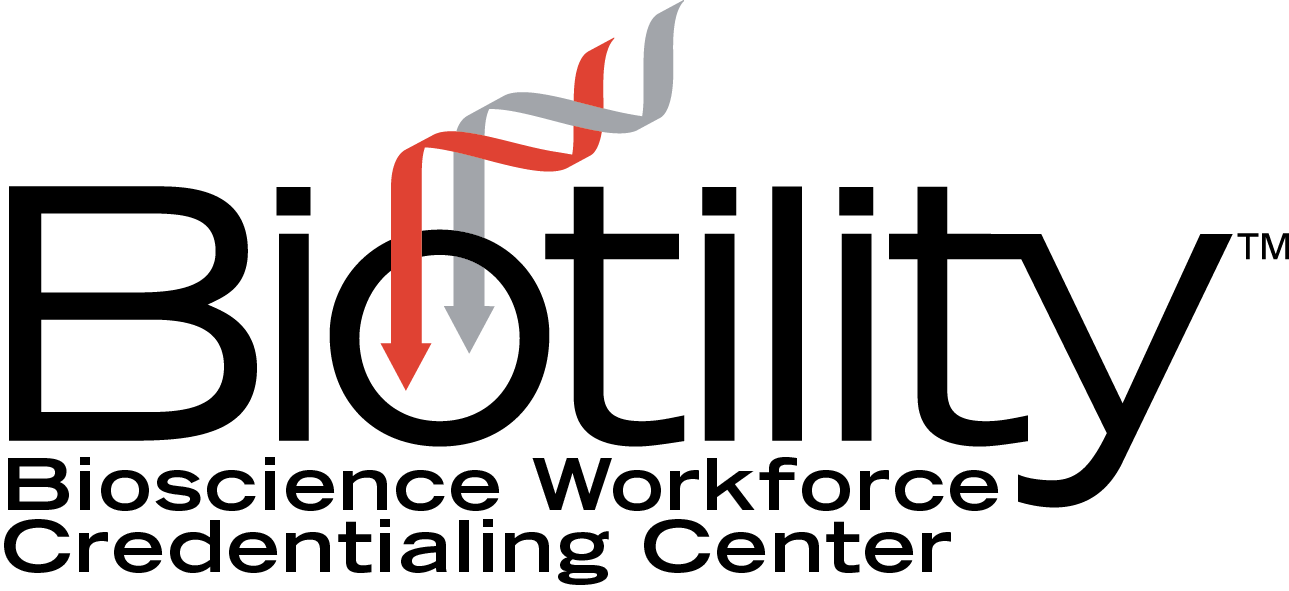Background
In response to Florida’s biotechnology industry transitioning from primarily research and development to high growth manufacturing, initiatives have been implemented to expand the state’s biotechnology workforce capacity. Florida’s secondary Industrial Biotechnology program was developed to create a pipeline of employees with skills and competencies leading to multiple career paths in the industry. Through NSF funding to the University of Florida’s Center of Excellence for Regenerative Health Biotechnology, and in partnership with the University of Florida’s Center for Precollegiate Education and Training, Santa Fe College, and the school boards of Alachua, Marion, and Palm Beach counties, a three-course framework for the program was created. A novel component of the program is the concept of using applications of science to discover, develop, manufacture, and test a product for human use, while transitioning away from the standard of science as academic research. As such, the program is a blend of Academic Science and Career & Technical Education.
Academic Standards
The program (Program Number 8736000) was developed on a foundation of skills and competencies identified by industry as required, or highly desired for successful employment and professional growth. The curriculum framework includes the use and application of specific tools and equipment used by the industry, as well as basic techniques and procedures that span the industry’s many applications. The curriculum within the context of the textbook utilized by most Florida school districts leans toward the development and manufacture of biopharmaceutical products, as well as applications to medical diagnostics, environmental, and agricultural/marine-based industries.
The course frameworks align Next Generation Sunshine State Standards and Performance Standards to integrate biotechnological concepts with applied learning. The course sequence counts for three full Career and Technical Education (CTE) credits, eligible for the Gold Seal Scholarship. Students who complete the three-course sequence will be prepared for entry-level positions in the field, articulation into an A.S. degree program in Biotechnology, or entrance to a four-year institution [Biotechnology 1 and 2 are coded as “SV” (Science/Vocational) for the subject area indicator, and “E” (Elective) on the SUS admissions indicator identified on the Bright Futures Comprehensive Course Table].
Industrial Biotechnology Performance Standards
The frameworks identifying the performance standards for Industrial Biotechnology 1, 2, and 3 can be found here.
The program (Program Number 8736000) was developed on a foundation of skills and competencies identified by industry as required, or highly desired for successful employment and professional growth. A central dogma of the program is to move away from the traditional teaching of science as an academic or basic research endeavor, and present it in the context of applying science-based knowledge and techniques to the discovery, development, and manufacture of a biotechnology-based product for commercial sale. The curriculum framework includes the use and application of specific tools and equipment used by the industry, as well as basic techniques and procedures that span the industry’s many applications. The curriculum within the context of the textbook utilized by most Florida school districts leans toward the development and manufacture of biopharmaceutical products, as well as applications to medical diagnostics, environmental, and agricultural/marine-based industries.
